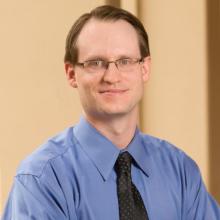Linda Wenger
[email protected]
(973) 449-3214

WASHINGTON, DC (September 22, 2020) — LUNGevity Foundation, the nation’s premier lung cancer-focused nonprofit organization, announced today that Maximilian Diehn, MD, PhD, has joined its Scientific Advisory Board. Dr. Diehn is the CRK Faculty Scholar and associate professor of radiation oncology at Stanford University School of Medicine. He is also the vice chair of research in the Department of Radiation Oncology as well as the division chief of radiation and cancer biology.
Dr. Diehn is a board-certified radiation oncologist and specializes in the treatment of lung cancers. Dr. Diehn’s research program spans laboratory, translational, and clinical studies. His main areas of interest include liquid biopsies, lung cancer biology, and mechanisms of resistance to anti-cancer therapies including radiotherapy, immunotherapy, and targeted therapies. He has served on committees for a variety of national organizations including ASTRO, ASCO, AARC, and RSNA and is a scientific editor for Cancer Discovery. Dr. Diehn has received funding from organizations such as the NIH, Department of Defense, and Stand Up To Cancer (with Dr. Lecia Sequist, and funded through the SU2C-ALA-LUNGevity Dream Team award). He has also been recognized with a variety of awards, including the NIH Director’s New Innovator Award, the V Foundation Scholar Award, the Sidney Kimmel Scholar Award, the Doris Duke Clinical Scientist Development Award, and election into the American Society for Clinical Investigation.
“On behalf of LUNGevity Foundation, I would like to welcome Dr. Maximilian Diehn to our Scientific Advisory Board,” said Andrea Ferris, President and CEO of LUNGevity Foundation. “Dr. Diehn’s contributions to the early detection of cancer are incredible. His group recently developed a next-generation sequencing-based method for detecting circulating tumor DNA called CAPP-Seq, which is currently being used to develop tests for the early detection of lung cancer. We are excited to be working with him on LUNGevity Foundation’s programs.”
LUNGevity’s Scientific Advisory Board, a group of 26 distinguished scientists and researchers that guides LUNGevity’s research program, oversees the Foundation’s translational research strategy and ensures that grants are awarded to researchers whose proposals demonstrate the greatest potential for finding lung cancer at its earliest, most treatable phase as well as extending and improving lives for lung cancer survivors.
In addition to guiding the research program, members of the Board assist the Foundation in numerous ways, including speaking at events and conferences; acting as key opinion leaders and experts on lung cancer at meetings; reviewing LUNGevity’s education materials to ensure accuracy; providing insights and observations of barriers and issues within lung cancer care; and more. The members of the Scientific Advisory Board represent the level of integrity and scientific standards that LUNGevity is striving for in all aspects of the Foundation.
“We are pleased to have the support of such accomplished and world-renowned lung cancer experts on our Scientific Advisory Board,” said Upal Basu Roy, PhD, MPH, Vice President of Research at LUNGevity. “We strategically select members based on the expertise, new perspective, and geographical diversity they bring to the table. They are the fabric of our organization and help ensure LUNGevity is tackling the most important issues that those affected by lung cancer face, from clinical trial access to ensuring patients receive optimal care.”
Dr. Diehn received his bachelor’s degree in biochemical sciences from Harvard College and his MD/PhD in biophysics from Stanford University.
LUNGevity is proud to welcome this exceptional physician and scientist to its Scientific Advisory Board.
About LUNGevity Foundation
LUNGevity Foundation is the nation’s leading lung cancer organization focused on improving outcomes for people with lung cancer through research, policy initiatives, education, support, and engagement for patients, survivors, and caregivers. LUNGevity seeks to make an immediate impact on the quality of life and survivorship for everyone touched by the disease—while promoting health equity by addressing disparities throughout the care continuum. LUNGevity works tirelessly to advance research into early detection and more effective treatments, provide information and educational tools to empower patients and their caregivers, promote impactful public policy initiatives, and amplify the patient voice through research and engagement. The organization provides an active community for patients and survivors—and those who help them live longer and better lives.
Comprehensive resources include a medically vetted and patient-centric website, a toll-free HELPLine for support, the International Lung Cancer Survivorship Conference, and an easy-to-use Clinical Trial Finder, among other tools. All of these programs are to achieve our vision—a world where no one dies of lung cancer. LUNGevity Foundation is proud to be a four-star Charity Navigator organization.
Our vision is a world where no one dies of lung cancer. For more information about LUNGevity Foundation, please visit www.LUNGevity.org.
About Lung Cancer in the U.S.
- About 1 in 16 Americans will be diagnosed with lung cancer in their lifetime
- More than 228,000 people in the U.S. will be diagnosed with lung cancer this year
- About 60%-65% of all new lung cancer diagnoses are among people who have never smoked or are former smokers
- Lung cancer takes more lives than the next three leading cancers (colorectal, breast, and prostate) combined
- Only 21% of all people diagnosed with lung cancer will survive 5 years or more, BUT if it’s caught before it spreads, the chance of 5-year survival improves dramatically
